The Republic set various rules in 509 B.C. that very clearly lay out courses of action, and the military is no exception to these strict guidelines. In order to be enlisted, you had to be a land-owning citizen with prior training. General had to appear before the senate to request an army, if approved a draft would be levied. Of course, these are just a few important details that go into the whole process which all seems quite solid. However after the years go on, the rules are being slowly bent further and further until they finally snap. Ambitious Romans everywhere want more power and control, in order to do that a precedent must first be set.
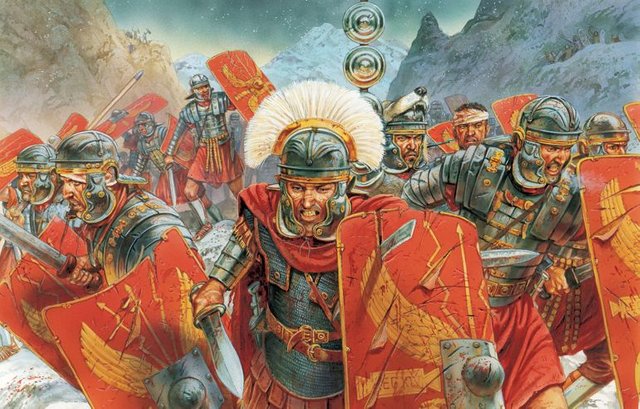
Gaius Marius
Uncle of Julius Caesar, he was in his 50's when he was elected Consul in 105 B.C. - his first of six. At one point he was named to go to Africa by taking charge of African legions to take over more territory. As I mentioned, normally the Senate has to approve a draft and land-owning citizens are called up to fight. However he chose not to levy a draft and asked for volunteers instead. He said that this would be beneficial to the state since these landless citizens would be in the military, not living off of the dole. This worked for non-citizens as well as they could earn citizenship by joining the fight.
This is actually pretty dangerous for Rome because now these soldiers are loyal only to Marius. Since they have no stake in the state through land, they have nothing to lose and more willing to do as he says, whatever he demands. After this, unified armies led by commanders with loyal soldiers became more common. Marius' army is the first standing army, meaning they don't return home in the end, they have no land to go to. The danger in this is that any ambitious general could be now powerful enough to go up against the state itself.
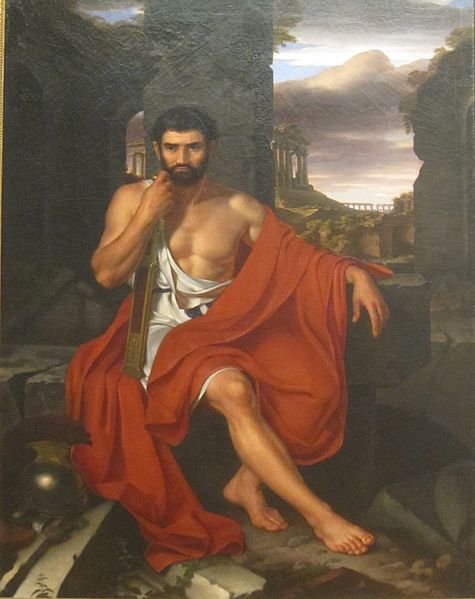
Lucius Sulla
When he was elected Consul in 88 B.C. Rome was suffering a problem in the east. A Greek king, Mithridates, was encroaching on Roman territory. The Senate chose Sulla to fight - ideal for him since he would come out a very wealthy man if successful. Sulla was an optimate which is an aristocrat that believes Rome should be ruled by an aristocracy. Marius was a populare meaning one who wants to give power to the people.
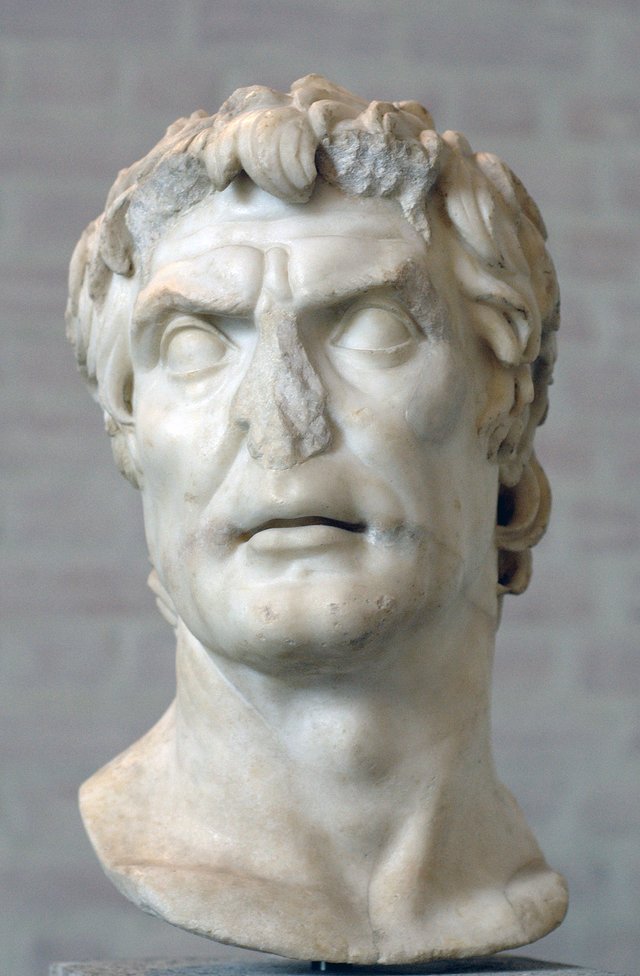
While Marius is on his farm, he hears that Sulla was chosen and becomes extremely jealous. He went to the Senate to argue that he should be the one to defeat Mithridates even though he was well into his 70's by this point. Despite his efforts, the Senate refused to listen. Instead of trying to argue with any longer, he goes to the Tribunes and convinces them to hold a plebiscite that asks whether he or Sulla should lead the army. The common people chose Marius of course, he's a friend of the poor. What Marius has done here is illegal; the power to choose military leaders rests in the Senate, the Tribunes do not have this power. This led to a civil war.
Sulla had already drafted his army but when he heard what Marius had done, he simply enters the city with his army. An army until this point had never entered the sacrosanct city walls, only for triumphs. When they're in, people could only defend themselves by throwing rocks since there were no weapons in the city. He arrived at the Senate house and surrounded it completely before asking that they declare Marius an outlaw. They were not in a position to refuse so they immediately agree and declared him so. Sulla promptly left with his army to Greece, while Marius was left behind.
Marius' Response
While Sulla was gone, Marius brought together his own army that consisted of whoever he could find - the dregs of Roman society. Once he did that he marched into the city of Rome and parked his army right outside the Senate house. He then asked the Senate to declare Sulla an outlaw instead, and again they agree. Once this was done, Marius began wreaking havoc on Rome, first by trying to get rid of his political opponents. Since he was a populare, he began murdering optimate left and right and even cut the head off of the other Consul.
It is open warfare in the streets and there is nothing the government can do. Although he eventually died of old age, his supporters continued to ensue chaos. In 82 B.C. Sulla returned to discover the disorder Rome was in. He marched his army through the city and named himself dictator (which lasted from 82 B.C. to 79 B.C.) with his excuse being that Rome was in disarray even though it all began with him. What's happening here is that the cost of those problems from the Punic Wars is Rome slipping away from the law.
Control under Sulla
Lucius' dictatorship was brutal as he butchered his political rivals as well and put 50,000 Roman citizens to death. It became a witch hunt and people began using this as an opportunity to get rid of their own rivals. Blood was flowing the streets but Sulla believed what he was doing was for the good of the state. Instead he was polluting the Republic and changing what it was about. Yet he viewed himself as a liberator and that he was going to make Rome stronger and better than ever.
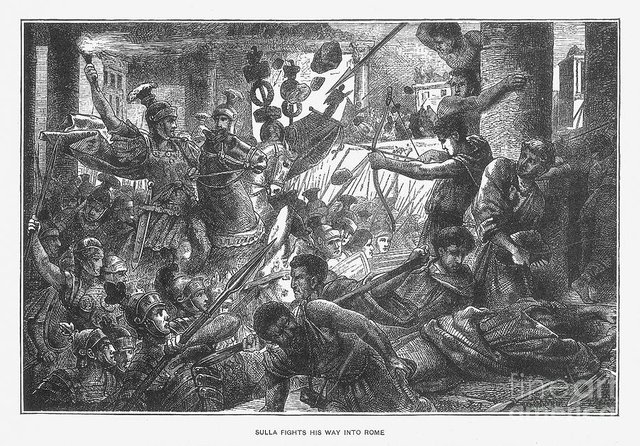
He passed many pieces of legislation and one of them included enlarging the Senate to 600 members. He opened a new class of Romans who were yes men specially chosen by him. He also restored the age limits for holding office - under Roman law you had to be at least 39 years old to be a Praetor, for instance. The reason for this is so that by the time a man is running for office, they are not running for personal ambitions. Of course since Sulla was an optimate, he made it so that aristocrats had all the power and removed the ability to make and veto laws from the Tribunes. At the end of his dictatorship he retired to his farm, where he died a year later. The funeral was huge, but that's probably because people were too afraid to not honor him.
Sulla left a horrible precedent that to many ambitious Romans are left asking the same question: "If he can do it, why can't I?"
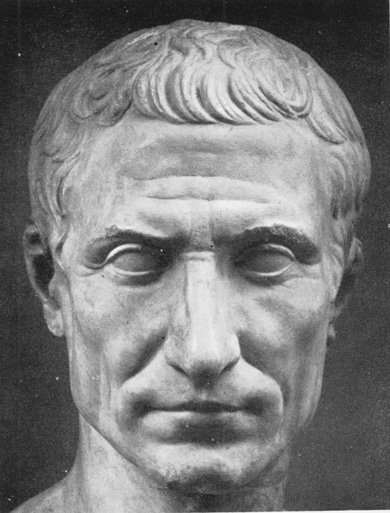
Sulla was such a weirdly interesting character. I used him to model a villain for one of my D&D campaigns.
Downvoting a post can decrease pending rewards and make it less visible. Common reasons:
Submit
How appropriate!
Downvoting a post can decrease pending rewards and make it less visible. Common reasons:
Submit
I love this period of history. Good post. Hopefully it will impure more people to dig into this time.
Downvoting a post can decrease pending rewards and make it less visible. Common reasons:
Submit
Thank you for your support!
Downvoting a post can decrease pending rewards and make it less visible. Common reasons:
Submit
Nice article!!! Keep on it!!! As a comum interest as i am history addicted i will follow!! Best regards!!!!
Downvoting a post can decrease pending rewards and make it less visible. Common reasons:
Submit
Thank you for reading!
Downvoting a post can decrease pending rewards and make it less visible. Common reasons:
Submit
What an interesting post. Always find roman history to interesting and very intriguing. Love finding great history posts like this keep up the good work! You got a new follower :)
Downvoting a post can decrease pending rewards and make it less visible. Common reasons:
Submit
Your support means a lot, thank you!
Downvoting a post can decrease pending rewards and make it less visible. Common reasons:
Submit